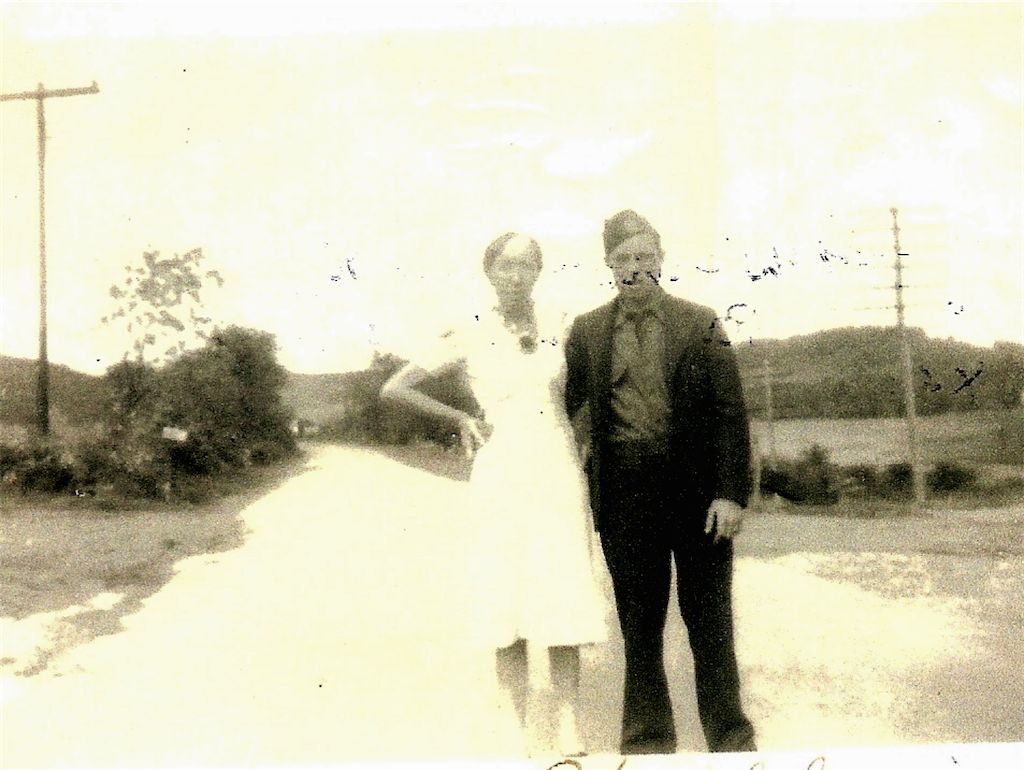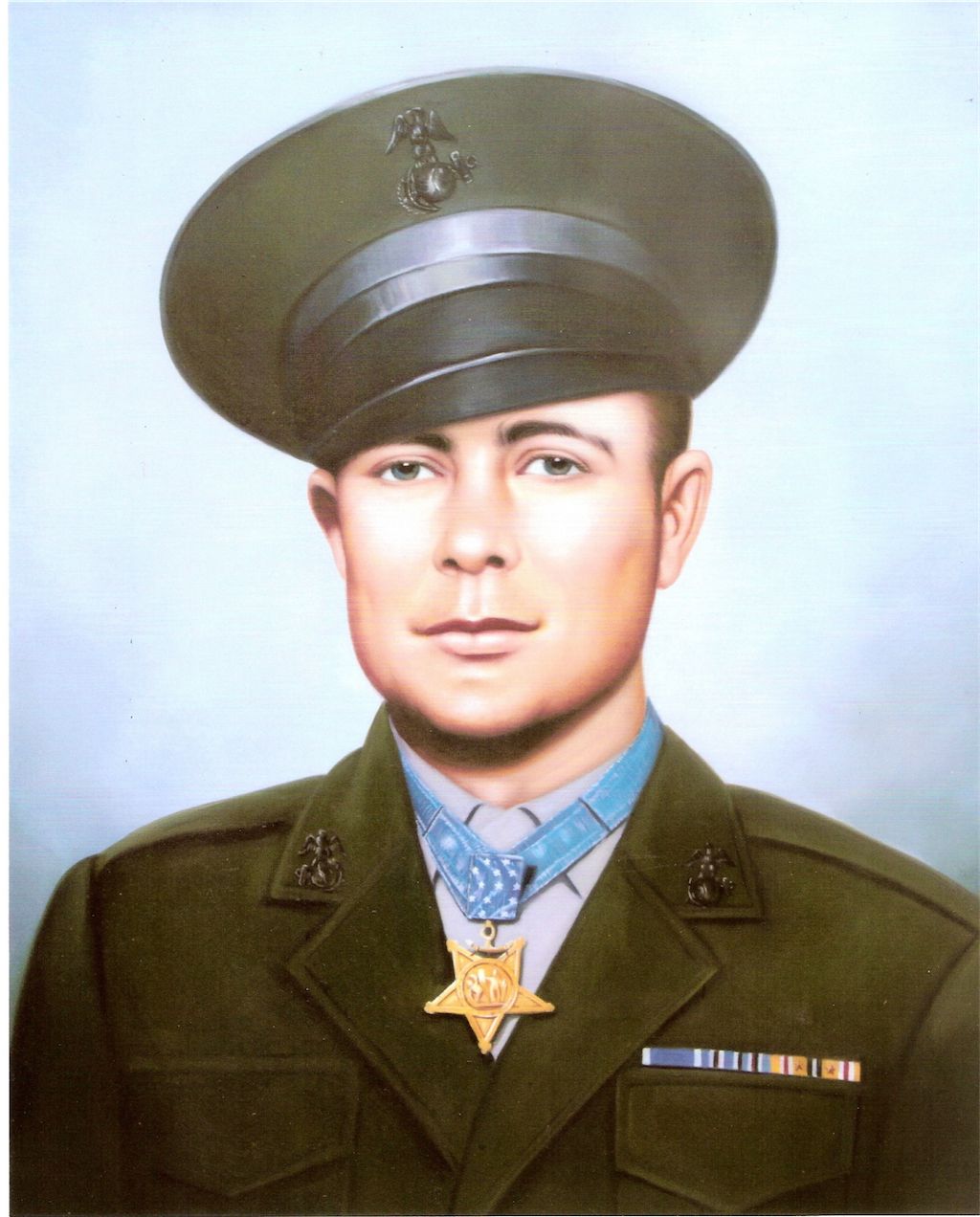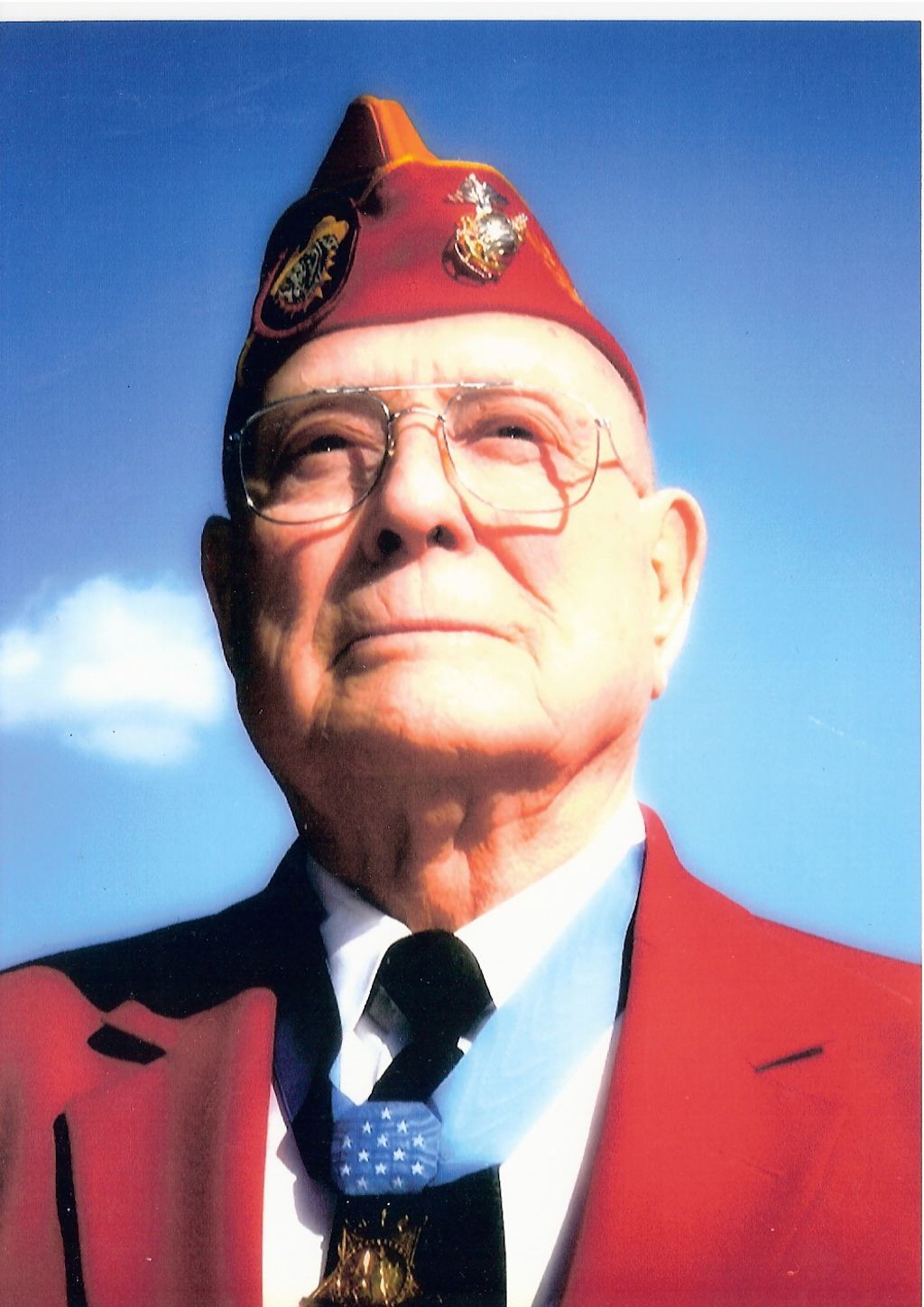Our Honoree was born October 2, 1923. He was raised at Quiet Dell, a small community in Eastern Marion County, West Virginia. He lived on a dairy farm started up by his father when Mr. Williams was four years of age. Williams was part of a large family of eleven, of which he was the youngest child. During 1928, he survived the flu. Six of his family members passed away during the epidemic, including his father. Because of hard times, he rode the milk truck to school which. He attended just one year as times were getting very difficult economically.
Woody's brother, William Gerald Williams joined the CCC in 1936. Gerald served in Pickens, Randolph County, West Virginia. When he would come home to visit, Hershel liked to listen to the stories of the CCC and hear about the guys he met. “I seldom saw a dollar bill during those rough Depression years back in Quiet Dell, West Virginia. When my brother showed us dollar bills he had earned, I said that I, when I came of age, wanted to join the CCC and join him at Pickens.”
When he finally was able to join the CCC, Mr. Williams was sent to Morgantown, West Virginia in 1941. A boyhood friend of his, Jimmy Sloan, also joined, but he was immediately shipped to Pickens. “I recall, we were all given uniforms and work clothes. We were paid twenty one dollars a month and we were required to send ten dollars home as a savings plan. This was indeed good for my Mom and family back at home. The money was so important just for subsistance as Mom had no income.”
“While in Morgantown, my first job was running a small jackhammer drilling holes in rocks at Cooper's Rock State Park. The rocks could be blasted loose to be used to build a wall around the cliff edges to keep people from falling.” he stated. “We also built walking paths in the park and some buildings.”
Mr. Williams then discussed further experiences in the CCC as he and his whole group were shipped from Morgantown to Whitehall, Montana. He commented: “An Army Lieutenant was in charge of the camp there. I recall there were over two hundred boys in that camp. Some of those boys were from West Virginia, others were from New York, and other states.” The Honoree continued describing his times in Montana. “Our main job was to cut pine posts in the Rocky Mountains with which to build what was called 'jack fences'. The Jack Fence required two posts notched to fit together which formed an upside down V so that five strands of barbed wire could be nailed to each side to keep animals being able to go through it or over it. The fence was about eight feet tall.” he noted. “During the summer, we built miles and miles of that fence.” He continued: “While working in the mountains we were supervised by civilians who were highly skilled woodsmen. I was lucky and got a job driving a crew truck hauling the workforce from camp to the mountain site where the posts were being cut. For a guy eighteen years old, that was a good thing.” Mr. Williams related numerous stories of his Montana CCC Camp.
Then came Pearl Harbor. “On December 8, 1941, everyone was called out of the barracks and we were shocked to find out that Pearl Harbor had been bombed.” he added. “We were told that we could go directly into the Army or we could request our release from the CCC so we could go home and join whichever of the services we wished. I was seventeen.” Our Honoree explained how he came to choose the U.S. Marines. “As a kid, I knew several young men in the community who went to serve in the Marine Corps. When they came home I remember being so impressed with their Marine dress blues. I said if I ever went to the military, that would be who I joined up with.”
Mr. Williams and five other Marines were sent to San Diego rather than Parris Island, South Carolina. “We were called 'Hollywood Marines'.” He was trained to use a new weapon, the flame thrower. It weighed about seventy pounds. He served in the battle of Guadalcanal in December 1943. “We shipped out for Iwo Jima as a reserve division.” he commented. “On Iwo, I remember, I kept telling myself that I was not going to die. I had to get back to that girl in Fairmont that I was going to marry.” He distinguished himself in the Battle of Iwo Jima and received a leg wound on March 6, 1945. “I was sent back to Guam for recovery. “In November, I was called to the General's office. Usually, a corporal called to a General's office was in trouble. The General congratulated me on being called back to the States to receive a medal. I had never heard of the Medal of Honor, at that time. Thirteen of us stood before President Truman on October 5, 1945, and were awarded the Medal of Honor. That Medal absolutely changed my life.”
Mr. Williams is spending the rest of his life working for Veteran's causes. He worked for the U.S. Dept. of Veteran's Affairs until his retirement. Just before retirement he started up a horse farm at his home near Barboursville, West Virginia.
Mr. Williams was married to his high school sweetheart, Ruby Meredith, for sixty two years until her passing. They had two daughters, Travie Jane and Tracie Jean, five grandsons and two great grandsons.
Williams received many honors and awards including the WV Distinguished Service Medal, the Vietnam Service Medal, Daughters of the American Revolution Medal of Honor. The National Guard Armory in Fairmont was named after Woody as was the Barboursville Bridge, Athletic Field and Veterans Memorial Field House in Huntington. He is also Chaplain Emeritus of the United States Medal of Honor Society.
More recently, our honoree represented West Virginia, the U.S. Marines, and all Medal of Honor winners at the December 27, 2013 Military Bowl held at Navy-Marine Corps Memorial Stadium.
Mr. Williams credits his strong Christian beliefs for his lifetime successes.

Woody and his mother, Rennie, taken at Quiet Dell, Marion County, on a visit home in 1943.

Official U.S. Marine Photo

Hershel Woody Williams in a more recent photo.